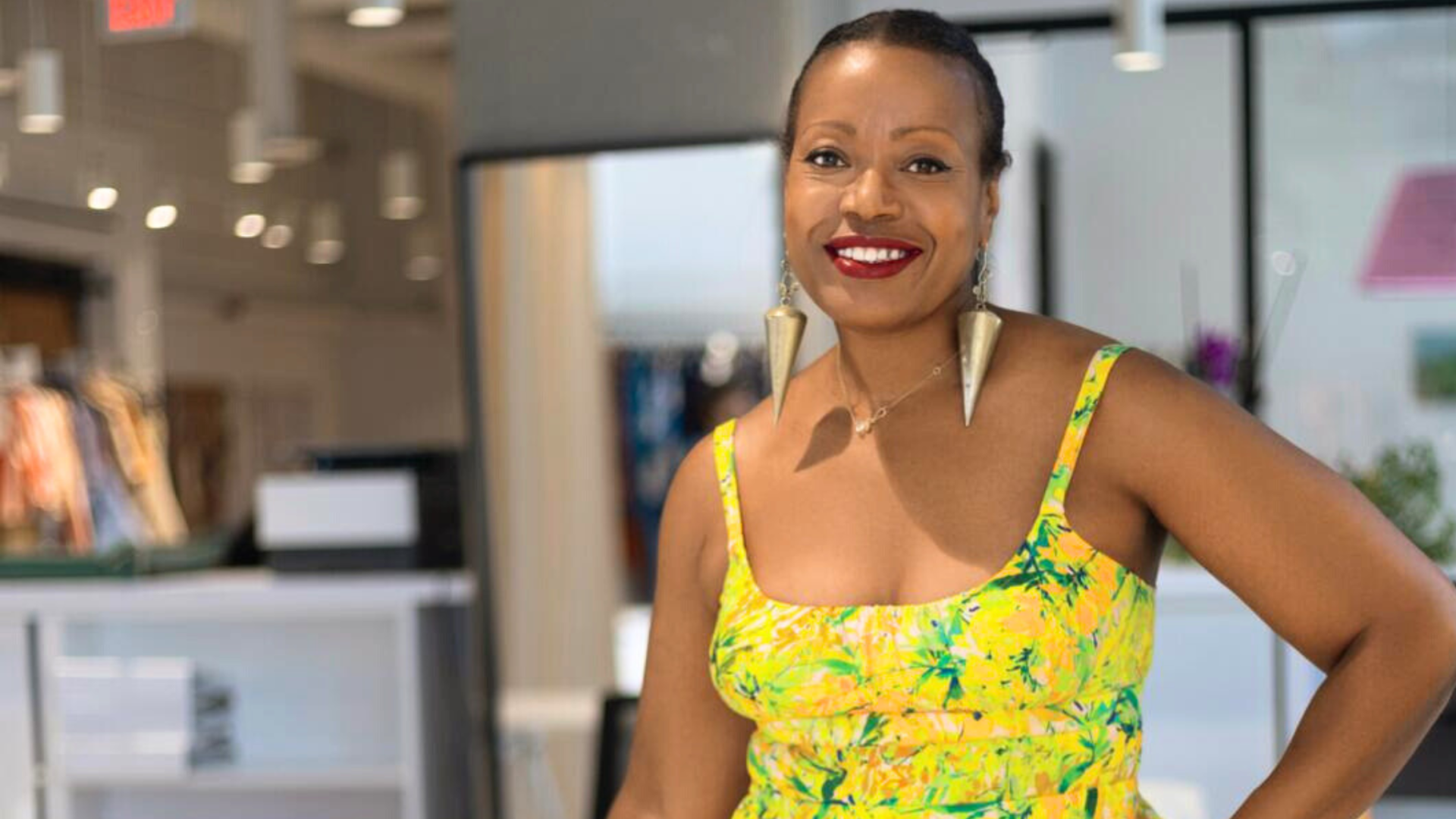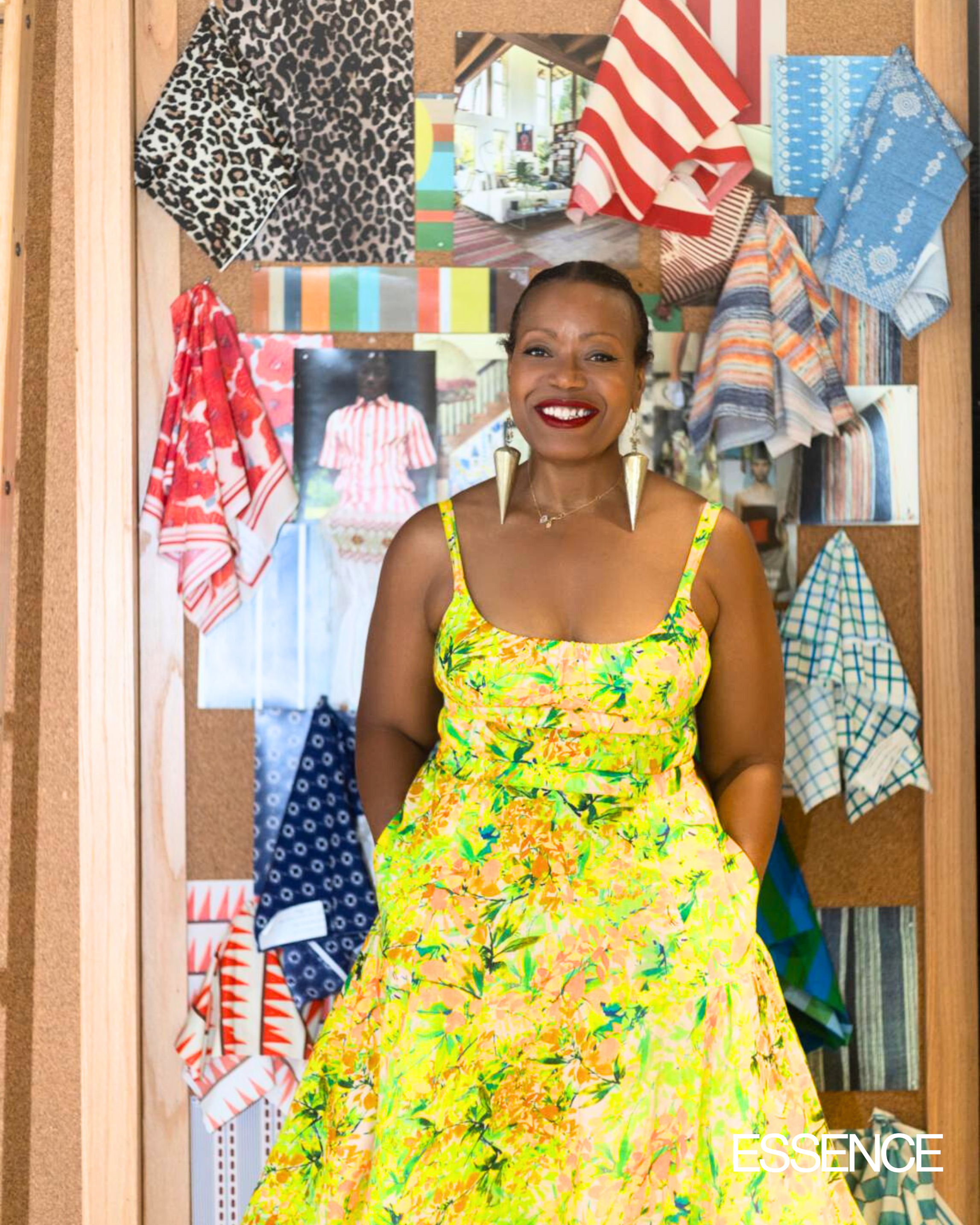
In the heart of Detroit, where creativity and resilience intertwine, Tracy Reese has carved out a legacy that transcends fashion. She has built an impactful career of more than three decades in the fashion industry, with an unwavering commitment to inclusivity and sustainability.
Known for her vibrant and feminine designs, Reese has consistently pushed the boundaries of contemporary fashion—blending bold colors, intricate patterns and elegant silhouettes to create pieces that celebrate the diversity and strength of women.
As founder of the fashion brand Hope for Flowers by Tracy Reese, she is not just a celebrated designer; she’s a beacon of sustainable practices and a champion for women’s empowerment. Her journey, deeply rooted in her hometown, offers a tapestry of memories and innovations that continue to drive change in the industry.
“Fashion can be more than a hobby; it can be something you love that also makes a difference in the world,” says Reese. Her passion for the field was ignited at an early age: “I started sewing when I was probably 8 or 9. [My mom] taught me, and we had home economics classes in elementary school at the time.”

As Reese talks, the image of her sketching designs and heading to the fabric store with her mother becomes vivid. “We would buy patterns and sketch out what we were going to sew,” she recalls. “Sometimes I’d put it on figures, combining my love for drawing and painting with fashion.” These early experiences, shared in the family basement with Michael Jackson playing in the background, laid the foundation for her future.
Through a high school summer program at the Parsons School of Design, Reese says, “I realized how big an industry fashion is and how important it is to the economy…. That’s when I decided to pursue fashion as a career.” In 1998, Reese launched her eponymous label, quickly becoming a favorite among fashion-forward women and celebrities. Her collections, characterized by their sophisticated yet accessible style, have been featured in top fashion magazines and worn by influential figures—including former First Lady Michelle Obama, who famously donned a custom dress in 2012.
Beyond her commercial success, Reese has been a trailblazer in advocating for sustainability. In 2019, she founded Hope for Flowers, a socially conscious line that emphasizes ethical production practices, environmentally friendly materials and support for local artisans. This initiative reflects Reese’s dedication to creating fashion that looks good and does good.
The brand represents a shift in Reese’s career. “I was at a crossroads with my old business partners,” she says, “being advised to jump on the fast-fashion bandwagon…. But I was learning about sustainability and how harmful fashion’s footprint can be.” Participating in a cohort on responsible design opened her eyes to the industry’s impact.
Determined to do better, Reese launched the new brand, focusing on responsible design, sustainable production and positive social impact—particularly in Detroit. “We have our design studio, a showroom, a small-batch production unit and a classroom, for our community programming,” she says. “Our team is local, giving opportunities to Detroiters who might not have had them otherwise.”

One of the brand’s core pillars is ensuring that every piece is crafted with care and respect, for the people who make it and for the environment.
Hope for Flowers also prioritizes community art in Detroit. “We have a dedicated classroom for our programming,” Reese says, “reaching out to young people and providing art education, which was cut after the city’s bankruptcy. It’s important that Detroiters have the opportunities I had growing up.” The brand’s programming, supported by a roster of teaching artists, offers classes for children ages 6 through 13, fostering creativity and appreciation for art from a young age.
Respect for craftsmanship and for the artisans behind it is a cornerstone of Hope for Flowers. Reese is passionate about ensuring that garment workers receive a living wage and have fair work conditions: “It’s a huge issue. Skilled workers are exploited all over the world for the sake of fast fashion, and it’s so harmful and unfair.”
Beyond her home base, Reese’s admiration for quality craft is palpable. Her travels to places like Nigeria and India, where tailors create custom garments with incredible skill, have profoundly influenced her. This appreciation for detailed, personalized work contrasts starkly with today’s fast-fashion model.
“Eighty percent of garment workers [globally] are women, and 80 percent of those are women of color, working below the poverty line,” she says. “They’re being paid by the piece—often less than a dollar to make a blouse that retails for $30 or $40.” The exploitation is not just unethical but unsustainable, Reese adds: “We have a whole generation of consumers that don’t know the difference between a well-made garment and something from a fast-fashion chain.”
Reese’s commitment to empowering women extends beyond fair wages and ethical practices. Hope for Flowers recently launched an apprenticeship program for expert sewing, approved by the Michigan Department of Labor. “Our apprentices start at $16 an hour,” Reese says, “progressing to $21 as they develop their skills. It’s about paying a living wage, not just a minimum wage.”







The program is part of Reese’s broader mission to preserve traditional work within the field. For Reese, Hope for Flowers is more than a brand; it’s a movement toward a more ethical and environmental fashion industry. “We’re offering a better option, and we want consumers to understand the full story,” she explains.
In a world where fast fashion often dominates, Reese’s Hope for Flowers stands as a testament to the power of thoughtful design, ethical practices and community engagement. “We must cherish and preserve the skills that create beautiful, lasting things,” Reese says. “They connect us to our history and are essential to a sustainable future. The value and love poured into each handcrafted piece are what truly make fashion meaningful.”
This story originally appeared in the September/October Issue of ESSENCE Magazine on newsstands on August 25.





